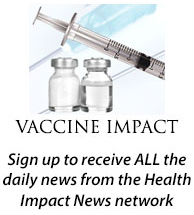Reishi mushrooms fight inflammation
by Dr. Joseph Mercola
Mercola.com
While inflammation can be uncomfortable if not downright painful, it isn’t all bad. As part of your body’s immune response, it’s a biological defense mechanism that indicates your body is trying to throw off harmful stimuli and heal itself. Wounds and infections wouldn’t be able to heal without the inflammatory response.
People may not be aware that inflammation is at the heart of a number of seemingly unrelated diseases and disorders. Inflammation is involved in dermatitis, appendicitis, tonsillitis and bronchitis, among other types of conditions. Without addressing the cause of the inflammation, problems can trigger other diseases and health conditions, such as rheumatoid arthritis and cancer.1
Aging is another factor that’s so widespread, and one is so often present with the other, that scientists call it “inflammaging,”2 which is “chronic, low-grade inflammation.”3 According to one study:
“Increasing evidence indicates that inflamm-aging is intensively associated with many aging diseases, such as Alzheimer’s disease, atherosclerosis, heart disease, type II diabetes, and cancer.”4
But people who love mushrooms, particularly the reishi variety (Ganoderma lucidum), will be interested in knowing that not only do they possess certain properties that fight inflammation, but many age-related conditions as well. As explained in an NPR article:
” … even though the science on inflammation and disease is far from settled, tests and treatments are being promoted that claim to reduce that risk. That’s even though inflammation is also a force for good, protecting against infection and injury. Acute inflammation occurs when you sprain your ankle or get a paper cut. It’s part of the immune system’s box of tricks to spark a defense and promote healing.
But when that response is constantly triggered, over time it can damage the body instead of healing it. That’s what happens in autoimmune diseases like rheumatoid arthritis. And increasingly, inflammation has been implicated in more common chronic diseases, too, though its exact role hasn’t been nailed down.”5
How reishi mushrooms exert beneficial activity
According to a 2017 study, reishi mushrooms have been found to prevent lung cancer, one of the most common types in both men and women.6 Study authors noted that compounds in reishi modulate the function of the receptor tyrosine kinases, also known as RTKs:
“RTKs are transmembrane (glycoproteins) which are activated by external stimulus and stabilize the receptor dimerization producing downstream signals. RTKs are indulged in various cellular processes, advancing in cell proliferation, differentiation, and migration.
RTK family comprises of receptor for insulin growth factor, vascular endothelial growth factor (VEGF), epidermal growth factor (EGF), and nerve growth factor (NGF) … Importantly, non-RTKs also become an integral part of signaling cascade controlled by RTKs.”7
There are a number of other ways this occurs. One is due to ganoderic acid, a terpene in reishi mushrooms that slows the cell cycle and induces the “mitochondrial-dependent process of apoptosis”8 and enhances the immune system by prompting the expression of:
- Macrophages — “Antimicrobial warriors” that “play critical roles in immune regulation and wound-healing,” “respond to a variety of cellular signals and change their physiology in response to local cues”9
- Natural killer (NK) cells — Specific types of white blood cells that are “innate immune cells endowed with potent cytolytic activity against tumors, and meanwhile act as regulatory cells for the immune system”10
- T cells — T-lymphocytes are part of your immune system, with different roles such as “helpers” for your immune system. Cytotoxic T cells seek and destroy pathogens11 and may help fight cancer12
According to Integrative Cancer Therapies, reishi mushrooms have been used in Asian countries for several reasons relating to health and longevity:
“Ganoderma lucidum also suppressed cell adhesion and cell migration of highly invasive breast and prostate cancer cells, suggesting its potency to reduce tumor invasiveness. Thus, Ganoderma lucidum clearly demonstrates anticancer activity in experiments with cancer cells and has possible therapeutic potential as a dietary supplement for an alternative therapy for breast and prostate cancer.”13
A differing viewpoint
Reishi mushrooms have long been recognized and used extensively as a natural medicine in Asia, particularly for immune system support. But scientists in Australia noted they hadn’t been subject to a systematic review to evaluate their true clinical benefits, especially those associated with cancer treatment.
As a result, researchers screened known studies using the Cochrane Central Register of Controlled Trials (RTCs), the Chinese Scientific Journals Database, the International Journal of Medicinal Mushrooms, and other sources to find references to the mushroom’s use. They also interviewed experts in herbal medicine and G. lucidum manufacturers. According to the review,14 produced in 2012, certain selection criteria were stipulated:
“Studies had to be RCTs comparing the efficacy of G. lucidum medications to active or placebo control in patients with cancer that had been diagnosed by pathology. All types and stages of cancer were eligible for inclusion. Trials were not restricted on the basis of language.”15
The criteria narrowed the field to five studies, and the general consensus among the Cochrane scientists was that there wasn’t enough scientific backing to say that G. lucidum should be used as a first-line treatment for cancer. They determined that updates to their findings should be conducted biannually, and several observations were made by the researchers, including:
- No trial had recorded long-term survival rates
- Leukocyte, NK-cell activity and other cancer markers were “marginally elevated”
- “Four studies showed that patients in the G. lucidum group had relatively improved quality of life compared to controls”
- Patients given G. lucidum along with chemo/radiotherapy were “more apt to respond positively” compared to chemo/radiotherapy alone
- In one of the studies there were some minor side effects noted by the authors, including nausea and insomnia
Cochrane called into question
It should be noted, however, that Cochrane, an international network of scientists known as the “gold standard” for independent scientific meta-reviews, was called into question by three of its most respected researchers, Peter Gøtzsche, Lars Jørgensen and Tom Jefferson.
The three published a review concerning the controversial HPV vaccine, saying that Cochrane’s positive reviews of the vaccine were faulty, that the HPV vaccine review missed nearly half the eligible trials, was influenced by biased reporting and biased trial designs and that the authors of Cochrane reviews should “make every effort to identify all trials and their limitations.”16
Former BMJ editor and director of the United Health Group’s chronic disease initiative, Richard Smith, wrote17 that Gøtzsche, for one, had been “expelled from the Cochrane Collaboration, which has caused some to fear that the Collaboration may be a ‘sinking ship,'”18 at least partially because he dared to confront drug companies’ corruption and conflict of interest.
Gøtzsche’s book, Deadly Medicines and Organised Crime: How Big Pharma Has Corrupted Healthcare, published in 2013, compared the pharmaceutical industry to organized crime. He said that it peddles drugs known to be more dangerous than advertised and that are “in large part responsible for the decimation of the very core of medical science, since they fund a great deal of the research.”19
The book further addresses how drug companies profit from false claims, often hide vital information about their drugs in order to put them on the market and keep them there. The author also describes “in evidence-based detail, an extraordinary system failure caused by widespread crime, corruption, bribery and impotent drug regulation in need of radical reforms.”20
More studies reveal reishi mushroom benefits
A 2018 study21 found that an extract of the reishi mushroom, noted as “a medicinal mushroom with anticancer activity, acts on breast cancer stem cells in vitro.”
A number of studies indicate that NF-kB-inhibiting nutrients can combat some of the most prevalent hallmarks of aging, including potential for inflammatory bowel disease and Crohn’s disease22 as well as inflammatory breast cancer.23 The nutrients can also help reduce inflammation of blood vessel walls, known to be a principal cause of atherosclerosis24 and heart disease.25
Regarding epilepsy and brain cell degradation,26 ganoderic acid applied to glial immune cells in mouse brains “significantly dropped production of inflammatory cytokines through NF-kB inhibition.”27
One study28 refers to aging as an “intricate and complex biological phenomenon” that requires an integrated approach of all your physiological systems. With “senescence” — the scientific term for growing old — several of the most concerning changes take place in the immune system, hence the term “immunosenescence.”
Scientists say that if this type of inflammation can be stopped, a major cause of degenerative aging can be slowed and possibly reversed. A gene-regulating protein complex called Nuclear Factor kappa B, or NF-kB is one factor:
“The nuclear factor NF-κB pathway has long been considered a prototypical proinflammatory signaling pathway, largely based on the role of NF-κB in the expression of proinflammatory genes including cytokines, chemokines, and adhesion molecules … NF-κB has long been considered the ‘holy grail’ as a target for new anti-inflammatory drugs …”29
Another study notes that reishi mushrooms, known as lingzhi in China, can be taken as a supplement in the form of powders, dietary supplements and tea derived from different parts of the mushroom, including the mycelia, spores, and the mushroom itself. Additionally, it has antioxidant, antiviral and antibacterial properties:
“The specific applications and attributed health benefits include control of blood glucose levels, modulation of the immune system, hepatoprotection, bacteriostasis, and more … G. lucidum spores were reported to contain a mixture of several long-chain fatty acids that may contribute to the antitumor activity of the mushroom.”30
Other plants that inhibit NF-kB
Reishi mushrooms aren’t the only plant extracts that have these types of beneficial effects:
- Green tea — Helps reduce inflammation due to its epigallocatechin gallate (EGCG) content, which is known to be chemoprotective, especially in bladder cancer.31 It also helps prevent heart disease32
- Cyanidin-3-O glucoside (C3G) — This polyphenol found in dark fruits and berries has NF-kB-inhibiting properties, noted for its ability to protect against heart disease by reducing inflammation and endothelial dysfunction, inflammatory bowel disease33 and retinal degeneration34
- Resveratrol — Also shown to prevent retinal degeneration, inflammatory bowel disease, ulcerative colitis and osteoporosis.35
Read the full article at Mercola.com.
References
1 Medical News Today November 24, 2017
2 Nature Reviews July 25, 2018
3 Trends in Endocrinology & Metabolism October 24, 2016
4 J Immunol Res. 2016; 2016: 8426874.
6 American Cancer Society 2019
7, 8 Tumor Biology June 27, 2017
9 American Physiological Society August 27, 2010
10 Frontiers in Immunology May 31, 2019
11 British Society for Immunology
12 National Cancer Institute T lymphocyte
13 Integrative Cancer Therapies January 2004;2(4):358-64 Ganoderma Lucidum (Reishi) in Cancer Treatment
14, 15 Cochrane Database Syst Rev. June 13, 2012;(6):CD007731
18 BMJ Evidenced-Based Medicine September 16, 2018
19, 20 Can Fam Physician. 2014 Apr; 60(4): 367-368.
21 Oncotarget November 13, 2018
22 Inflamm Bowel Disease August 1, 2015; 21(8):1918-1925
23 Nutr Cancer. October 25, 2011 ; 63(7): 1085–1094
24 Iran J Basic Med Sci. May 2015; 18(5): 514–519
25 Evid Based Complement Alternat Med. March 4, 2014;2014: 305149
26 Experimental and Therapeutic Medicine November 8, 2017
28 J Leukoc Biol. October 21, 2017;102(4): 977–988
29 Cold Spring Harb Perspect Biol. December 2009;1(6): a001651
30 Herbal Medicine: Biomolecular and Clinical Aspects. 2nd edition CRC Press/Taylor * Francis; 2011
31 Octotarget February 23, 2018 9(15): 12261–12272
32 Journal of Cardiovascular Pharmacology February 2018 Volume 71, Issue 2
33 Mediators of Inflammation March 8, 2017
34 Journal of Immunology Research April 30, 2018
35 Experimental and Therapeutic Medicine September 20, 2017 ; 14(5): 5032–5038










Join the Discussion